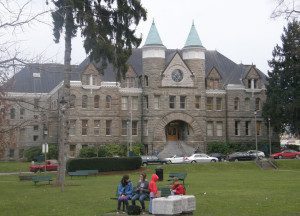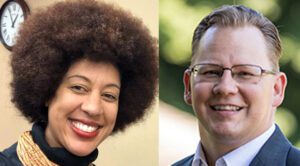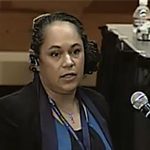Education Advocate July 2016

|
|
|||||
Building a quality public education system from cradle to career.

|
|
|||||

During the 2016 session, the Washington legislature passed Opportunity Gap House Bill 1541, which includes significant changes to student discipline laws.
These changes also affect the rules for student discipline (Chapter 392-400 WAC) and student enrollment reporting for state funding (WAC 392-121-108) during the period of suspension and expulsion. The Washington Office of the Superintendent of Public Instruction (OSPI) will align the rules with this new law before the upcoming school year. OSPI will provide further clarification through additional rulemaking during the 2016–17 school year.
Below is summary of changes effective June 9 that impact the 2016–17 school year. For more information, see OSPI Bulletin No. 024-16.
Limitations on Long-Term Suspensions and Expulsions
A long-term suspension or expulsion must not exceed the length of an academic term, as defined by the school board, from the time of the disciplinary action. This shortens the maximum length of a suspension or expulsion from the prior limitation of one calendar year.
School districts must not use long-term suspension or expulsion as a form of discretionary discipline. “Discretionary discipline” is a disciplinary action taken by a district for student behavior that violates the rules of student conduct, except for actions taken in response to:
Except for in response to the above, school districts may no longer use long-term suspension or expulsion. Even for any of the violations above, districts should consider alternative actions before using long-term suspension or expulsion, except for violation of the prohibition against firearms on school premises.
Possession of a telecommunication device and violation of dress and grooming codes are removed from the list of discretionary violations that, if performed two or more times within a three-year period, may result in long-term suspension or expulsion.
Requirement to Provide Educational Services
School districts may not suspend the provision of educational services as a disciplinary action, whether discretionary or nondiscretionary.
While students may be excluded from classrooms and other instructional or activity areas for the period of suspension or expulsion, districts must provide students with an opportunity to receive educational services during that time.
If educational services are provided in an alternative setting, the alternative setting should be comparable, equitable, and appropriate to the regular education services a student would have received without the exclusionary discipline.
Reengagement Plan and Meeting
School districts must convene a reengagement meeting with the student and family when a long-term suspension or expulsion is imposed.
Families must have access to, provide meaningful input on, and have the opportunity to participate in a culturally sensitive and culturally responsive reengagement plan.
Policies and Procedures
School districts must:
Questions? Contact OSPI:
For questions about student discipline, alternatives to suspension, and reengagement meetings:
Joshua Lynch, Program Supervisor | Student Discipline and Behavior
joshua.lynch@k12.wa.us | 360-725-4969
For questions about Alternative Learning Experience (ALE) and online learning:
Lillian Hunter, Director | Digital Learning Department
lillian.hunter@k12.wa.us | 206-543-5426
For questions about student enrollment reporting for state funding:
Becky McLean, Supervisor | Enrollment Reporting and Categorical Funding
becky.mclean@k12.wa.us | 360-725-6306
Additional Resources

|
|
|||||

Candidates who want to lead Washington’s school system as its next superintendent will speak at forums around the state. If you know of any other scheduled OSPI candidate forums, please email info to LEV Communications Director Arik Korman
OSPI candidates advancing to the general election November 8:

If you are unable to attend a live candidate forum, TVW will carry them. Info HERE
Watch the October 5th Woodinville candidate forum HERE
Note: The League of Education Voters is not promoting or endorsing either candidate.
At the League of Education Voters (LEV), we recognize all of the hard work that you do toward improving public education across Washington state. We are pleased to announce our Activist of the Month for April: Dakoda Foxx. Read more about Dakoda’s advocacy and activism in her community.
 Dakoda Foxx’s advocacy work began close to home in 2011, after her daughter was suspended for 100 days. Dakoda knew this “wasn’t right,” so she went to TeamChild to talk to them about her daughter’s IEP (Individualized Education Program) and her options for reengagement. Through her conversations about school discipline, Dakoda learned that many parents in her Puyallup community had children facing the same issues.
Dakoda Foxx’s advocacy work began close to home in 2011, after her daughter was suspended for 100 days. Dakoda knew this “wasn’t right,” so she went to TeamChild to talk to them about her daughter’s IEP (Individualized Education Program) and her options for reengagement. Through her conversations about school discipline, Dakoda learned that many parents in her Puyallup community had children facing the same issues.
From there, she began advocating in earnest. Dakoda advocated at all levels—from doorbelling to testifying about discipline. In 2012, Dakoda began looking for organizations who would work on legislation about school discipline, and that’s how she learned that the League of Education Voters was already working on Senate Bill 5946.
The rest, as they say, is history. Dakoda has continued testifying about school discipline and closing the gaps on a regular basis—most recently in support of Rep. Sharon Tomiko Santos’ bill on closing the achievement gap (HB 1541). Shortly before that testimony, Dakoda also spoke at the March State Board of Education meeting in Tacoma about transforming school discipline. Read More
At the League of Education Voters (LEV), we recognize all of the hard work that you do toward improving public education across Washington state. We are pleased to announce our Activist of the Month for June: Linda Lozano. Read more about her experience as an activist and advocate for her community, her family, and everyone around her.
 It’s something of an understatement to say that the odds were against Linda Lozano from the very beginning. Born to a teenage mother, Linda essentially raised her younger sister after she was born—and Linda was just seven years old.
It’s something of an understatement to say that the odds were against Linda Lozano from the very beginning. Born to a teenage mother, Linda essentially raised her younger sister after she was born—and Linda was just seven years old.
Linda learned a “culture of abandonment” from an early age, and she says she was angry for a long time. Linda openly admits that she made a lot of bad choices as a young adult, some of which landed her in jail, and some of which caused her kids to be taken by Child Protective Services.
“Sometimes in life, the stage is set for us. We know we want something different but don’t know how to achieve it,” says Linda.
So Linda set out to learn how to achieve something different. Read More
![Transforming School Discipline: The Next Step [image of children running]](https://b2881166.smushcdn.com/2881166/wp-content/uploads/2014/03/2014_discipline_levinars-300x184.jpg?lossy=1&strip=1&webp=1) During the 2013 legislative session, many of you helped us pass a law (SB 5946) that makes school discipline data public and limits the number of days that students can be removed from class.
During the 2013 legislative session, many of you helped us pass a law (SB 5946) that makes school discipline data public and limits the number of days that students can be removed from class.
That was the first step in transforming school discipline policies. Now it’s time to take another.
The Office of Superintendent of Public Instruction (OSPI) is inviting public comment on its implementation of the new law.
There are a few ways you can get involved. Read More